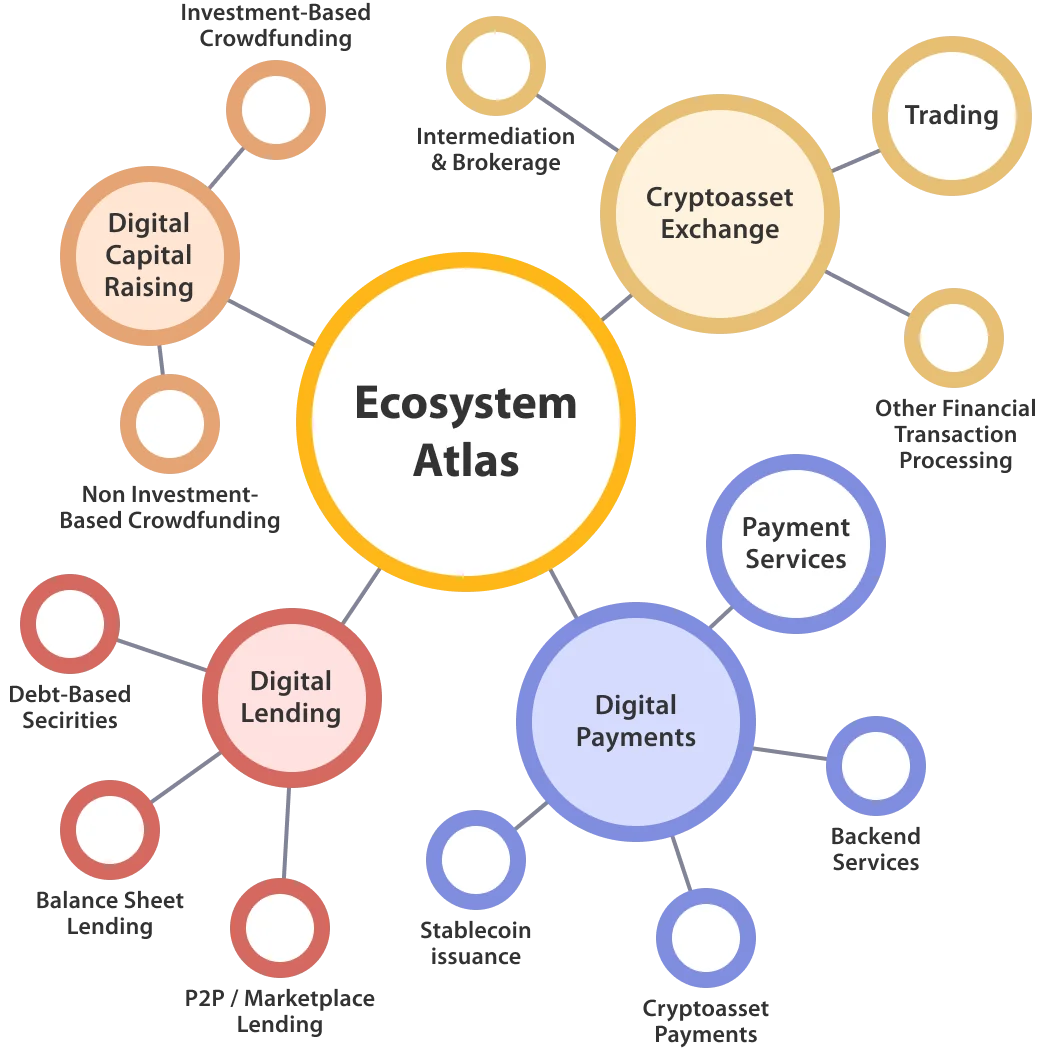The Cambridge Centre for Alternative Finance
The Cambridge Centre for Alternative Finance (CCAF) is a research centre at the University of Cambridge Judge Business School. Our mission is to create and transfer knowledge addressing emergent gaps in the financial sector that supports evidence-based decision-making.
This website is dedicated to CCAF’s digital tools – a set of interactive data visualisations that provide timely Fintech market data to enable the work and practice of market participants, policymakers and regulators.
Watch the launch event for the CCAF's digital tools:

Cambridge Fintech Ecosystem Atlas
The Atlas is a digital tool that identifies, depicts, tracks and analyses Fintech entities and their activities across market segments and geographies over time.
Atlas enables a representation of the evolution of Fintech since 2010 using different approaches: Graph, Map and Table.
The following data cuts available across all visualisation approaches:
- Operating status (Active, Inactive)
- Market segments
- Jurisdictions
- Ownership type (Private, Public)
- Focus (Cryptoasset, Inclusive Fintech)
- Years (2010-2021)
Cambridge Alternative Finance Benchmarks
Benchmarks hosts the latest aggregated-level data, analysis and insights of the CCAF research on Digital Lending and Digital Capital Raising.
The tool has been designed to allow users to navigate our global time-series data and undertake analysis and comparisons between regions and business models.
Cambridge Blockchain Network Sustainability Index (CBNSI)
The CBNSI tool explores the scale and implications of the Bitcoin network’s electricity consumption. It features the following components:
- Index providing a daily estimate of the total electricity load and consumption, as well as a cumulative consumption representation since July 2010.
- Mining map tracking the geographic distribution of Bitcoin mining facilities over time
- Comparisons putting the electricity footprint into a broader perspective
- FAQ addressing various categories of questions and common misconceptions